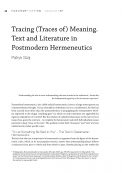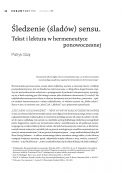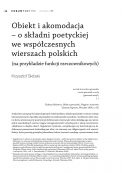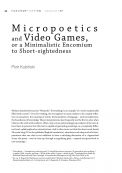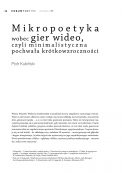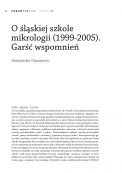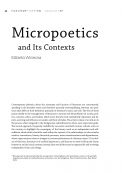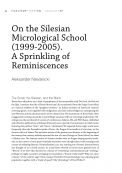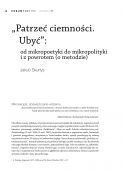Object and Accommodation – On Poetic Syntax in Contemporary Polish Poetry (a case study of nominal function)
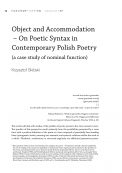
na stole stoi woda w garnuszku
a może garnuszek z wodą
(garnuszek wody?)
[…]
(on the table stands water in a pot / or perhaps a pot with water / (a pot of water?)
Tadeusz Różewicz, “Woda w garnuszku, Niagara i autoironia”
(Water in a Pot, Niagara and Self-Irony)
(in Zawsze fragment [Always Fragment], Wrocław 1996, p. (...)






